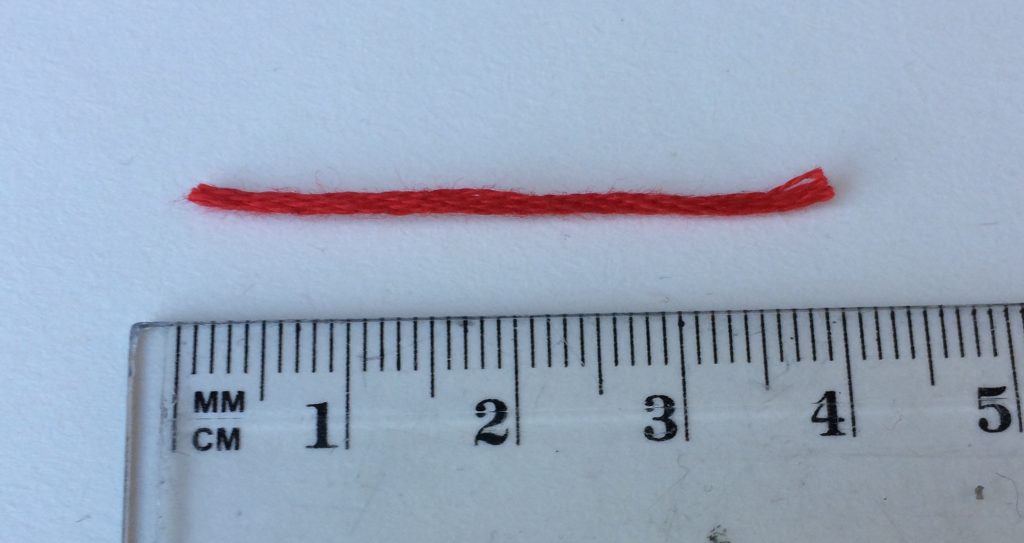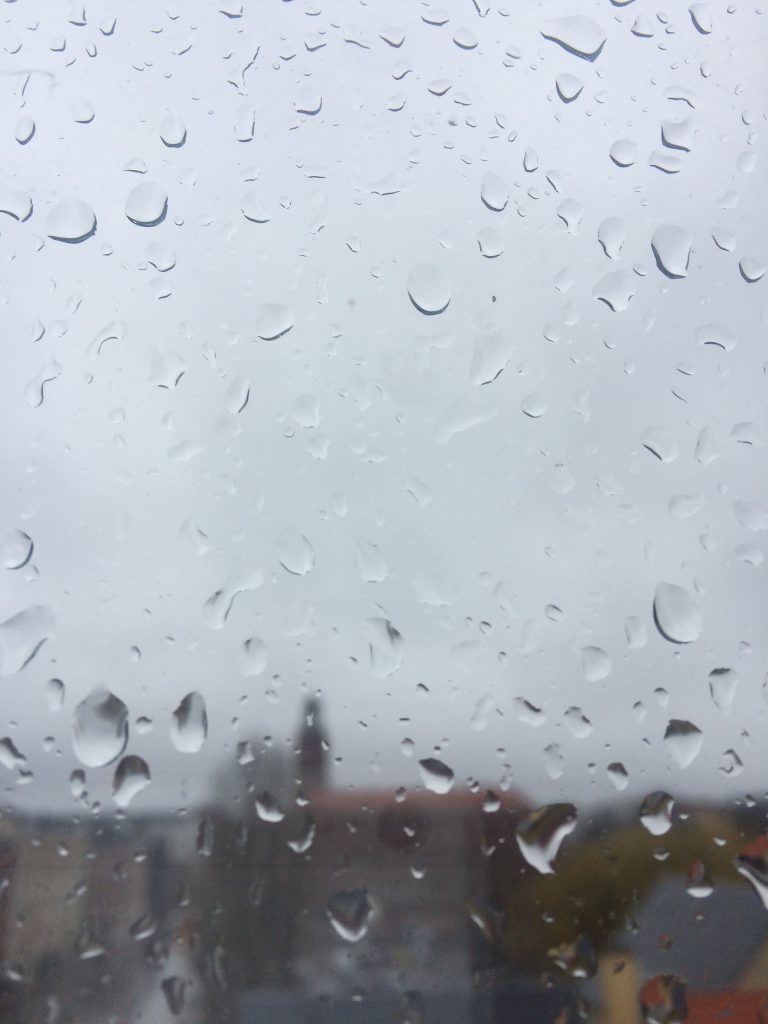"A picture is laid against reality like a ruler."
(Ludwig Wittgenstein)
There hasn’t been a lot of rain around here lately. Today is another beautiful April day in partially re-opened Copenhagen, cruelly “mixing memory and desire,” and I can’t recall when it last rained. But I can consult the weather archive of the Danish Meteorological Institute to learn that it has rained on three days in April so far, no doubt “stirring dull roots” each time it did. In fact, DMI reports that 1.2 mm, 1.6 mm, and 0.3 mm fell on April 1, 2 and 12, respectively. At the time, someone might have said, simply, “It’s raining.” But now they can say, rather confidently, “On April 1, it rained 1.2 mm.” What gives them this confidence? What does that statement mean?
The best way to understand a measurement is to understand the measuring instrument. In this case, I assume DMI uses some sort of rain gauge. It’s always useful to hear how scientists explain things to children, and it turns out that the measurement refers to the depth of the water at the bottom of a regularly shaped container (one that is the same size from the opening at the top all the way to bottom) that has been left out in the rain. An official rain gauge is a little more sophisticated in order to make the measurement more precise, but that doesn’t change what the measurement means. You can stick a ruler into the container, or pour the water into a properly calibrated graduated cylinder, or just collect the water in that graduated cylinder in the first place (by way of a funnel whose opening is as big as your original container). It amounts to the same thing.
Now, “it is raining,” may (on occasion, as Quine points out) be a true sentence, but it refers to a big and rather vague fact. How can I be sure that “it” rained 1.2 mm in Frederiksberg on April 1? And what does this even mean? This is where we get into even more detailed descriptions of our methods of data collection. But again, it can probably be explained to school children without much trouble.
If you want to measure how much rain fell on your neighborhood, you could, in principle, use a straight-sided, flat-bottomed container that covered every square meter. Then you just measure how deep the water is. On April 1 in Frederiksberg, they say, you would have found it was 1.2 mm. That’s not workable in practice of course, but it has the virtue of getting us to imagine collecting all the water that fell on a given day in the entire neighborhood. Maybe it rained a little more in my backyard than yours? If we had relied on my gauge and then, yes, generalized our results we may have overestimated the total rainfall. And that’s not to mention all the little accidents — wind, birds, leaves — that could have interfered with or abetted the water getting into my gauge or yours. If we collect all the water, we wouldn’t have to worry about this since it all ends up on the ground we’re interested in.
To simulate this — to collect a representative sample of the rain — we set up a number of rain gauges all over the neighborhood. We measure the depth in each of them, and then we average the results. We may even weight them according to how they are spaced around town. The more seriously we take this business, the more accurate our result, and the more confident we can be when we declare that 1.2 mm of rain fell on Frederiksberg on April 1, 2020.
Suppose I want to know whether the population approves of our prime minister’s handling of the COVID-19 outbreak. At one level, we could make a simple, qualitative observation based on the impression we get from watching the news and talking to friends and neighbors: “The prime minister is very popular at the moment.” This is like saying, “There hasn’t been a lot of rain around here lately,” and may or may not be true. But our question is actually more interesting and requires measurement. We can survey the population and compare the result to previous surveys. We have to make sure that our surveys ask enough people and sample from different segments of the population. We also have to ask whether the pollsters themselves have biases, and we have to average among the different surveys that have been done. It can be very complicated, but the procedure can be described, if not to school children, then certainly to university students. But underneath it all are the surveys themselves, the “instruments” that gathered the responses from each of the people that were polled.
Andrew Gelman is tireless in his insistence on the importance of good measurement in social science. “Purity of heart is no protection,” he tells us: “the math doesn’t care. If you conduct power = .06 research, or if you try to study ovulation and you get the dates of ovulation wrong, or if you study sex ratios without understanding scales of variation, or if you study himmicanes without getting control of your data, etc., then you will fail to learn about reality. You will be doing bad science. Science has its own logic.” You’re probably a good person. But that’s not enough.
I began this series with Ezra Pound’s idea that “the arts provide data for ethics.” I will return to this idea in greater detail in my next post, but I want to end by emphasizing, as Pound did, the connection between good science and serious art. It lies in the precision of the observation, the accuracy of our measurements. “The serious artist,” says Pound, “is scientific in that he presents the image of his desire, of his hate, of his indifference as precisely that, as precisely the image of his own desire, hate or indifference. The more precise his record the more lasting and unassailable his work of art” (Literary Essays, p. 46). As a social scientist you also maintain a record of “images”, mental pictures of social facts, and you do well to be just as precise. A great deal depends upon it.


